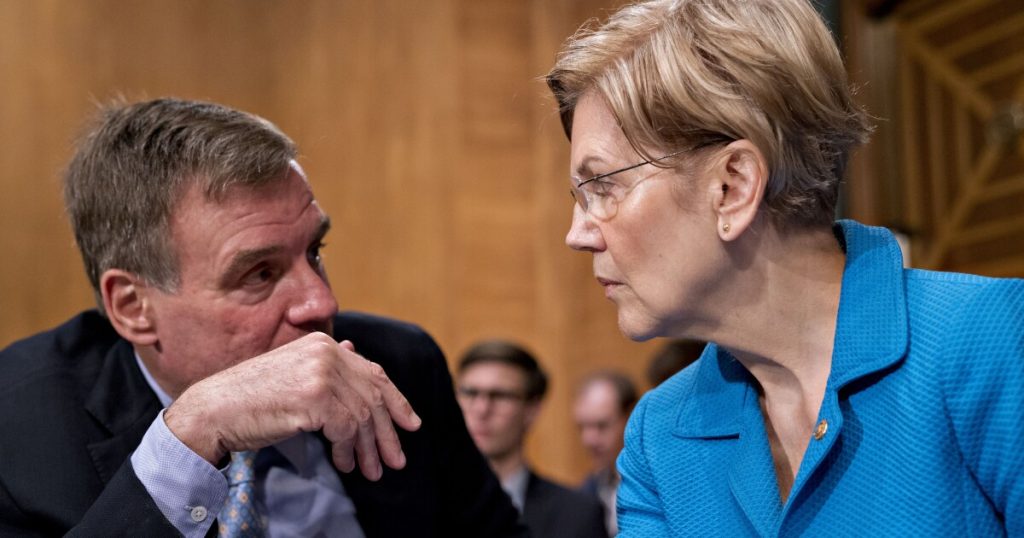Democratic lawmakers on the Senate Banking Committee Monday sent a letter to the Trump Administration’s bank regulators challenging their move to soften a risk-blind capital requirement for the nation’s biggest banks.
The letter, dated Friday and signed by every Democrat on the committee — ranking member Elizabeth Warren, D-Mass.; Jack Reed, D-R.I.; and Mark Warner, D-Va. — said regulators should delay finalization of the proposed rule until the administration provides a more detailed economic and cost-benefit analysis for the move.
“By reducing capital by more than $200 billion, the proposal may reduce GSIB lending capacity by up to $2.7 trillion,” lawmakers wrote. “We urge the agencies to estimate the impacts of this potential decline in lending on economic growth…The economic costs of rushing through this type of proposal, and potentially getting it wrong, could be severe, and would be borne by American taxpayers, small businesses, and low- and middle-income households across the country”
The letter’s recipients, Federal Reserve Vice Chair for Supervision Michelle Bowman, Comptroller of the Currency Jonathan Gould and Acting Federal Deposit Insurance Corporation
Chair Travis Hill, are currently taking public comment on the proposal, which would lower holding company capital requirements, through August 26.
The enhanced supplementary leverage ratio was part of the post-2008 financial crisis reform package aimed at improving the largest banks’ ability to absorb losses. The
The Trump administration’s
“While we acknowledge the value of these benefits to the U.S. financial system if these claims prove accurate, the agencies should support these claims by estimating the amount of Treasurys GSIBs will purchase as a result of the proposal,” they wrote. “The agencies only provide an estimate of the increased ‘capacity’ for GSIBs to purchase Treasurys, without clarifying that GSIBs presently have more than $3 trillion in unused balance sheet capacity to purchase Treasurys under existing rules.”
Those skeptical of the June proposal say reducing the eSLR applied to GSIBs would substantially increase the leverage they can take on, which could increase the chances of their failure and expose the FDIC’s Deposit Insurance Fund to losses. The DIF is funded by fees paid by banks relative to their size, but the fund is ultimately backed by the federal government, meaning sufficient losses would be borne by taxpayers in the worst scenarios.
The lawmakers also argued that regulators need to better explain and quantify the proposal. As written, they said, the eSLR rewrite could incentivize banks to reallocate their resources to trading on the market and away from the kinds of lending activities that stimulate economic growth.
“Every $1 of capital that GSIBs shift out of their banks to other parts of the organization could reduce the applicable bank’s lending capacity to small businesses, other key financial institutions, and everyday households by approximately $12.50,” the lawmakers wrote. “We urge the agencies to estimate the impacts of this potential decline in lending on economic growth.”

